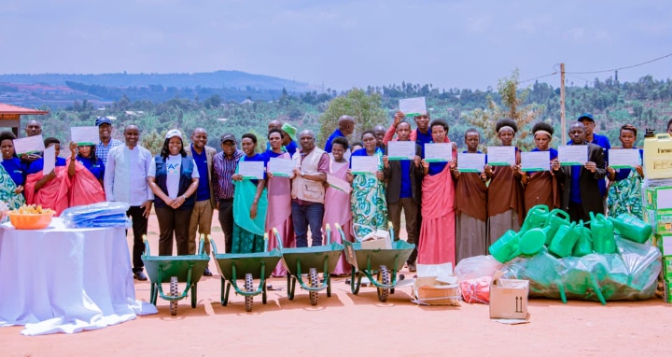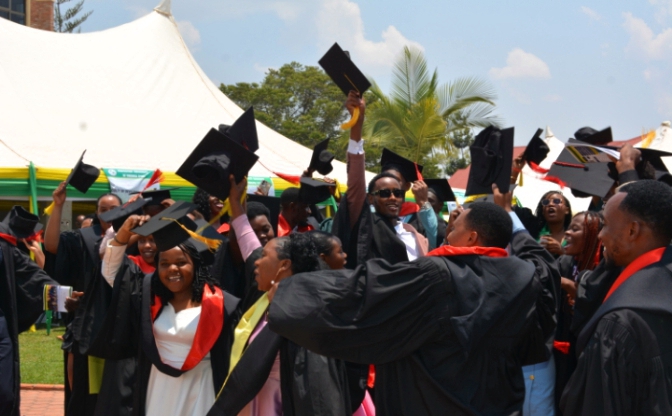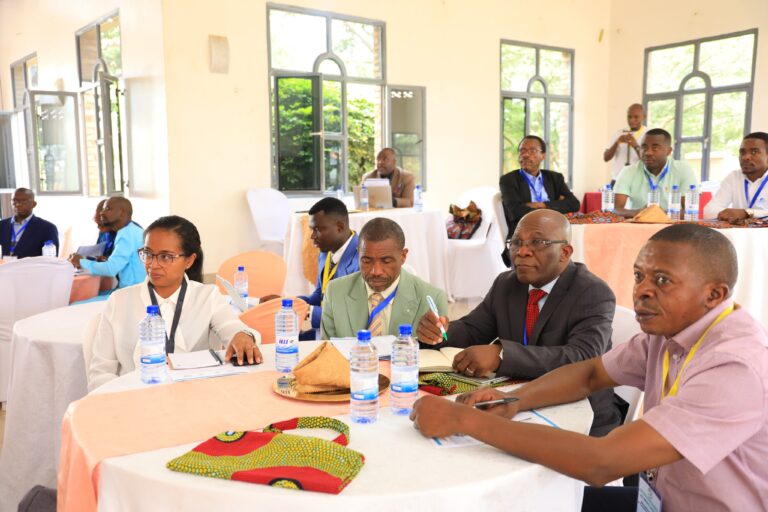Residents of Gisagara District who were trained under the Joint Programme on Rural Women’s Economic Empowerment (JP RWEE) — a United Nations initiative led by FAO, IFAD, WFP, and UN Women — report that the skills they acquired in modern farming have become a cornerstone of their social and economic progress.
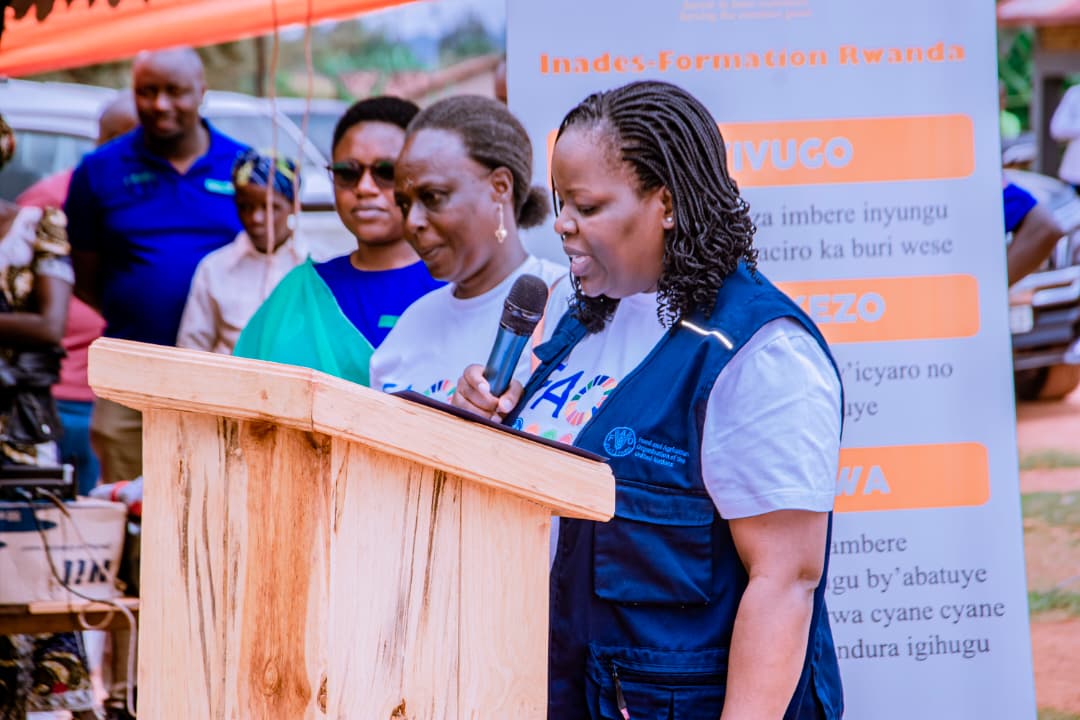
According to the FAO Country Representative, Dr. Nomathemba Mhlanga, the JP RWEE aims to strengthen rural women’s livelihoods, rights, and resilience within the framework of Agenda 2030 and the Sustainable Development Goals. In Rwanda, it is being implemented in five districts: Gisagara, Nyaruguru, Ngoma, Nyamasheke, and Kirehe.
In Gisagara, the programme currently operates in Save and Ndora sectors, covering four cells (Gatoki, Shyanda, Cyamukuza, and Mukande) and 29 villages. To date, 30 Farmer Field Schools have been established to provide hands-on training in modern agriculture, savings and loan groups (VSLAs), and household well-being. Thirty community facilitators were trained to support farmers in these schools, with 28 successfully completing the program and receiving certificates.
Epiphanie Mukakamanzi, a farmer from Gatoki Cell, explained how the training transformed her approach: “Before these trainings, we did not know how to prepare or rotate crops, and yields were always poor. During the dry season, we used to graze livestock in the fields and wait idly for the rains. But now, after the training, we irrigate our crops, obtain good harvests, and continue improving our livelihoods.”
Similarly, Fideli Mbonabucya, also from Gatoki, said his family now enjoys greater well-being thanks to improved harvests: “My yields have grown significantly. I can now comfortably pay my children’s school fees, cover our health insurance on time, and I am preparing to start monthly savings in Ejo Heza [a long-term savings scheme].”
Other farmers, such as Seraphine Nyirandikubwimana, highlighted how crop rotation and diversification techniques have improved food security: “Before, we farmed without planning. Now we know how to rotate crops properly and cultivate different varieties side by side to maximize harvests.”
According to Celestin Hitimana, the INADES-Formation Rwanda National Director who oversees JP RWEE in Gisagara, Nyaruguru, Ngoma, Nyamasheke, and Kirehe districts, the initiative has focused on increasing productivity through practical field-based learning. Each trained FFS facilitator represents 20 to 30 farmers and is responsible for transferring knowledge to them. “The facilitators were trained in Farmer Field School (FFS) facilitation, conflict resolution and peaceful coexistence, as well as in various agricultural research and learning activities conducted within the Farmer Field Schools. Once they extend this knowledge to their peers, we expect to see significant improvements in yields, enabling many households to move out of poverty,” he said.
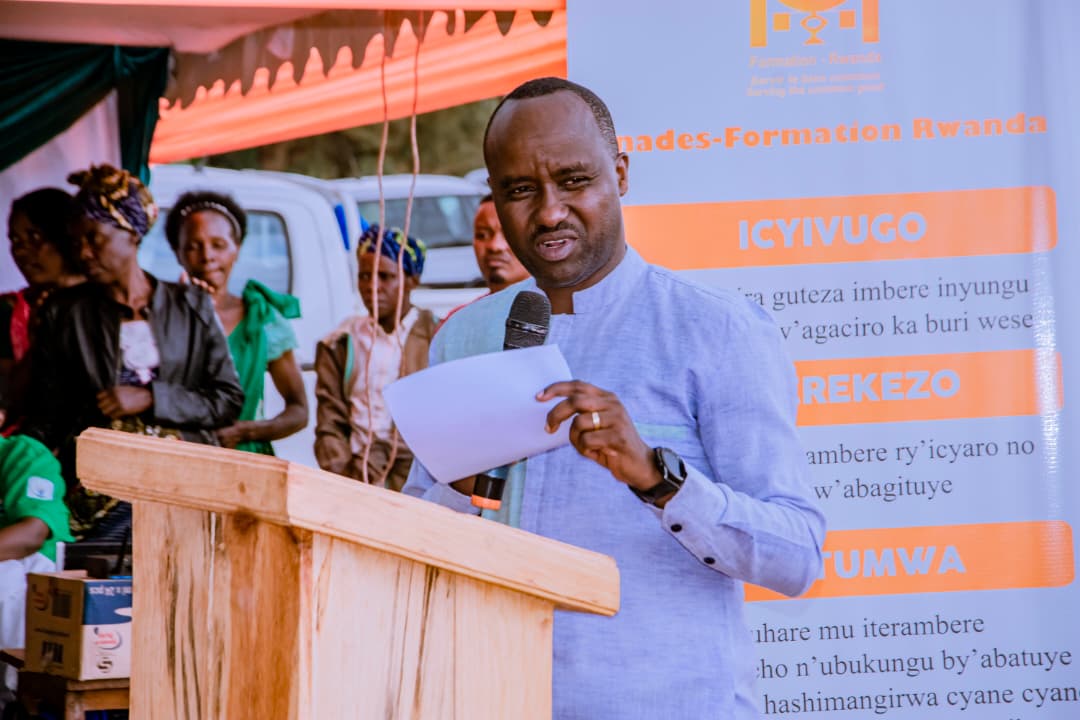
Gisagara District Mayor, Jérôme Rutaburingoga, emphasized that these trained farmers are expected to complement the work of existing agronomists: “They will support their families and neighbors, encourage cooperative formation, and drive both household and district-wide development.”
The trainings also included applied research through Farmer Field Schools, comparing types of fertilizers to identify the most productive, comparing crop varieties to determine which yield better and mature faster, and comparing farming techniques to identify the most effective ones. Four cooperatives were established; two in Save and two in Ndora sectors, focusing on maize, beans, cassava, and vegetables. These cooperatives are now pooling resources to rent farmland for collective production.
The project also reached 125 families previously struggling with domestic conflicts, training them in prevention, conflict resolution, and equitable sharing of unpaid household labor; a common source of disputes. These families are now helping to train others in their communities.
To improve post-harvest handling and climate adaptation, farmers received 40 storage silos (each with a 350 kg capacity), five tarpaulins, eight pesticide sprayers, and ten crates. Additionally, 50 rainwater harvesting tanks of 5,000 liters and 80 of 2,000 liters were distributed, along with energy-saving stoves.
Beyond farming techniques, farmers also received training in financial literacy, hygiene and nutrition, climate change adaptation, savings and credit, cooperative governance, succession law, leadership, and self-confidence to engage in decision-making bodies. They also participated in study tours and agricultural exhibitions, gaining further exposure and inspiration.
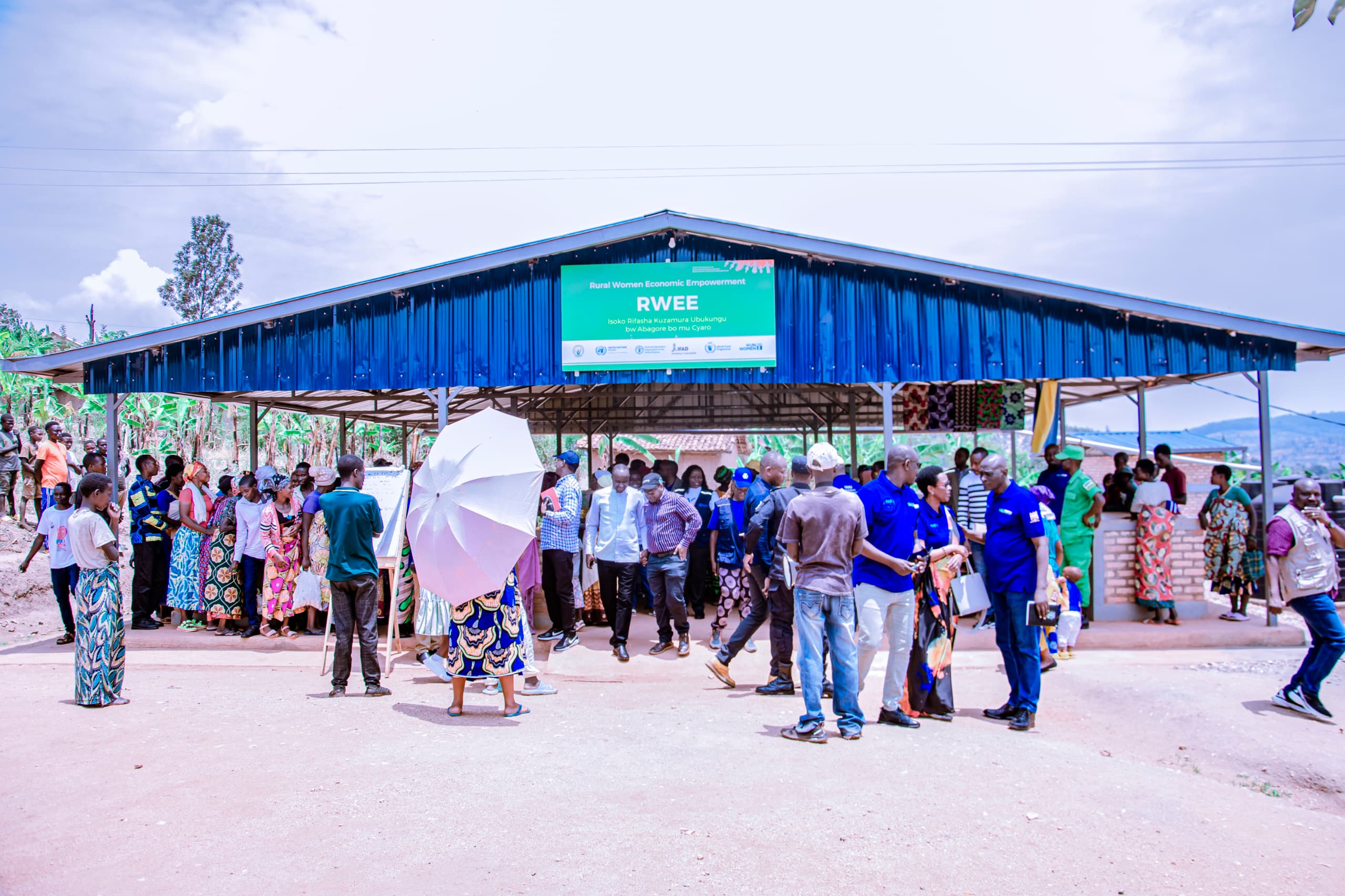
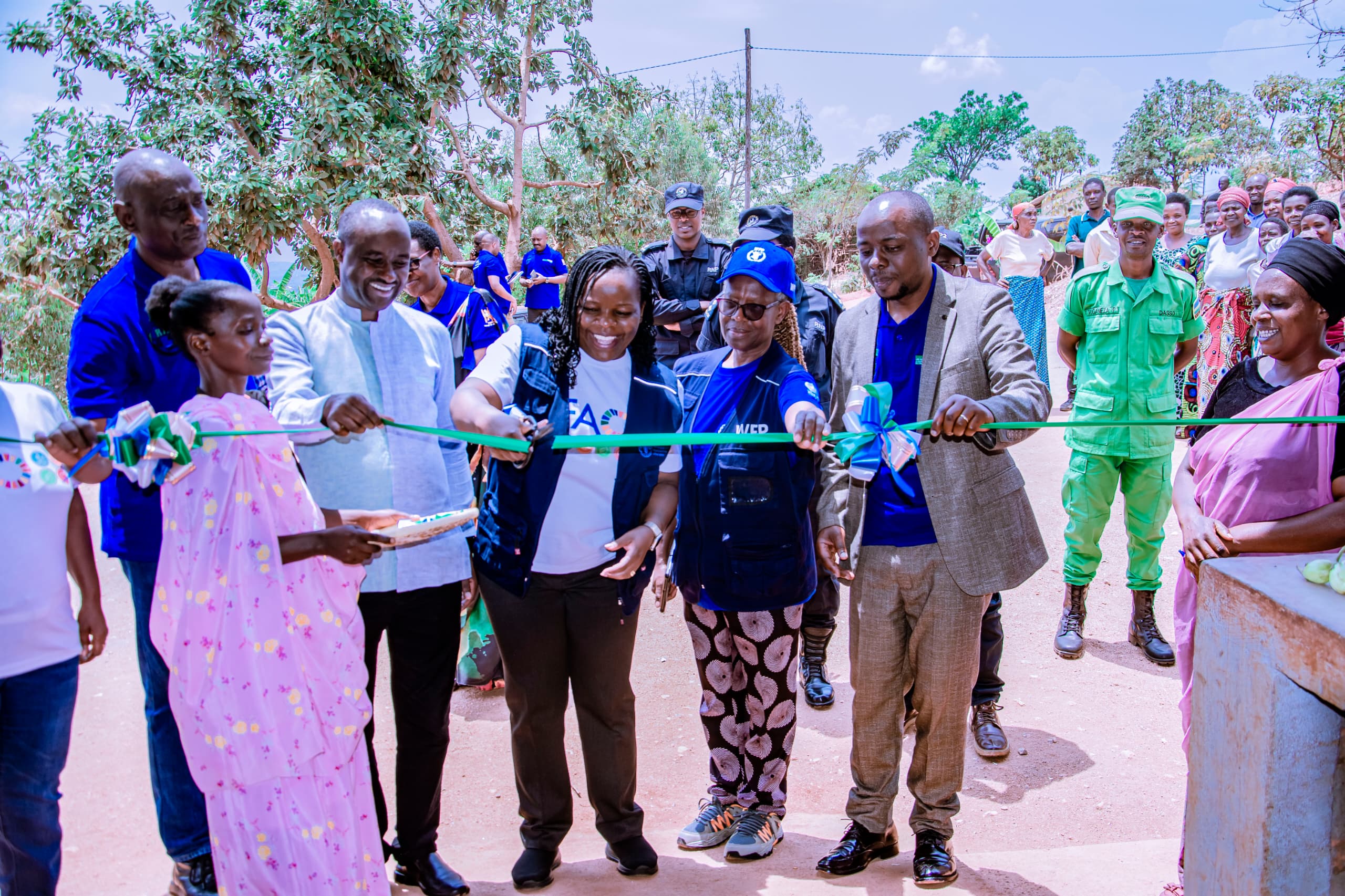
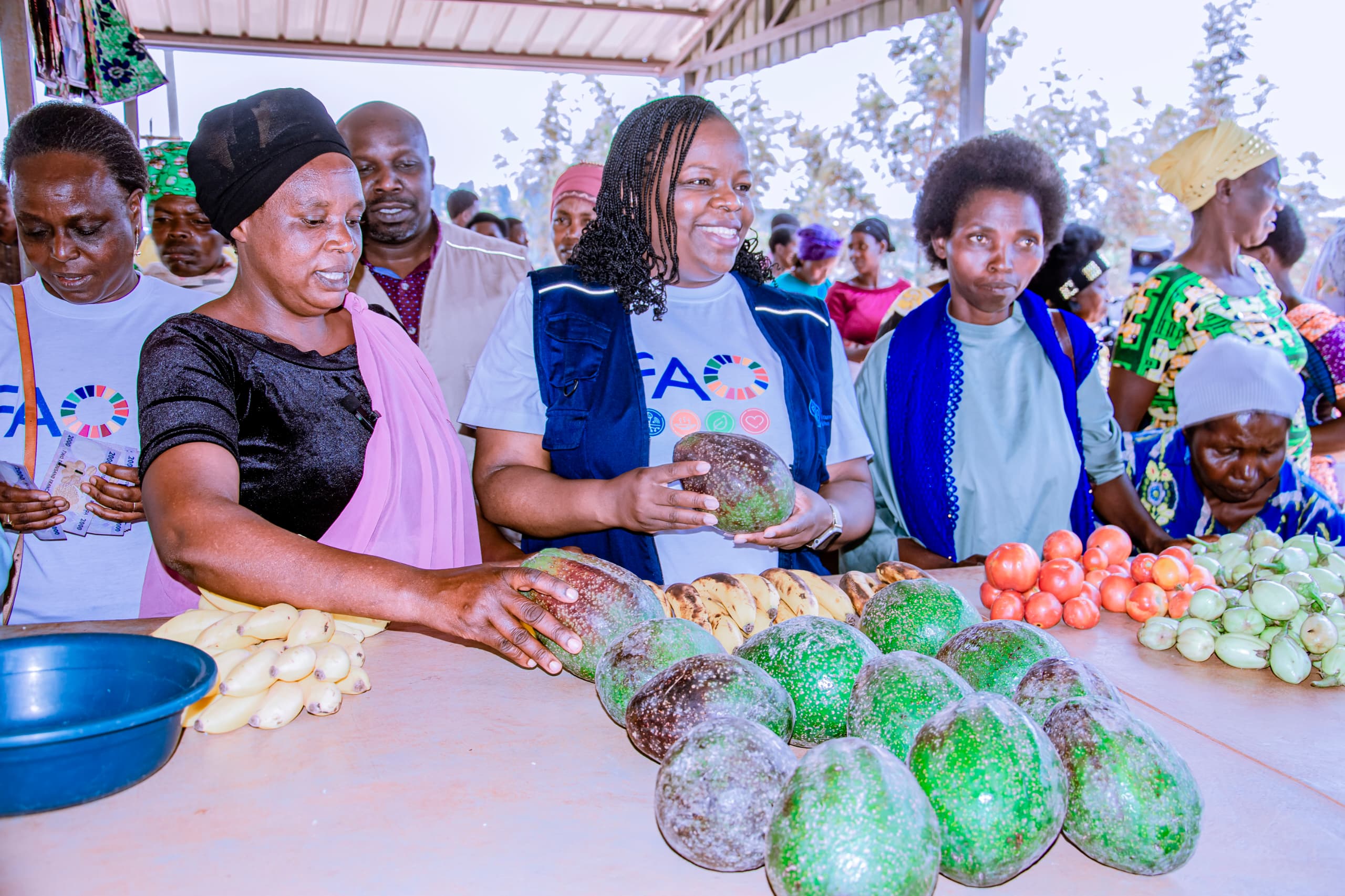
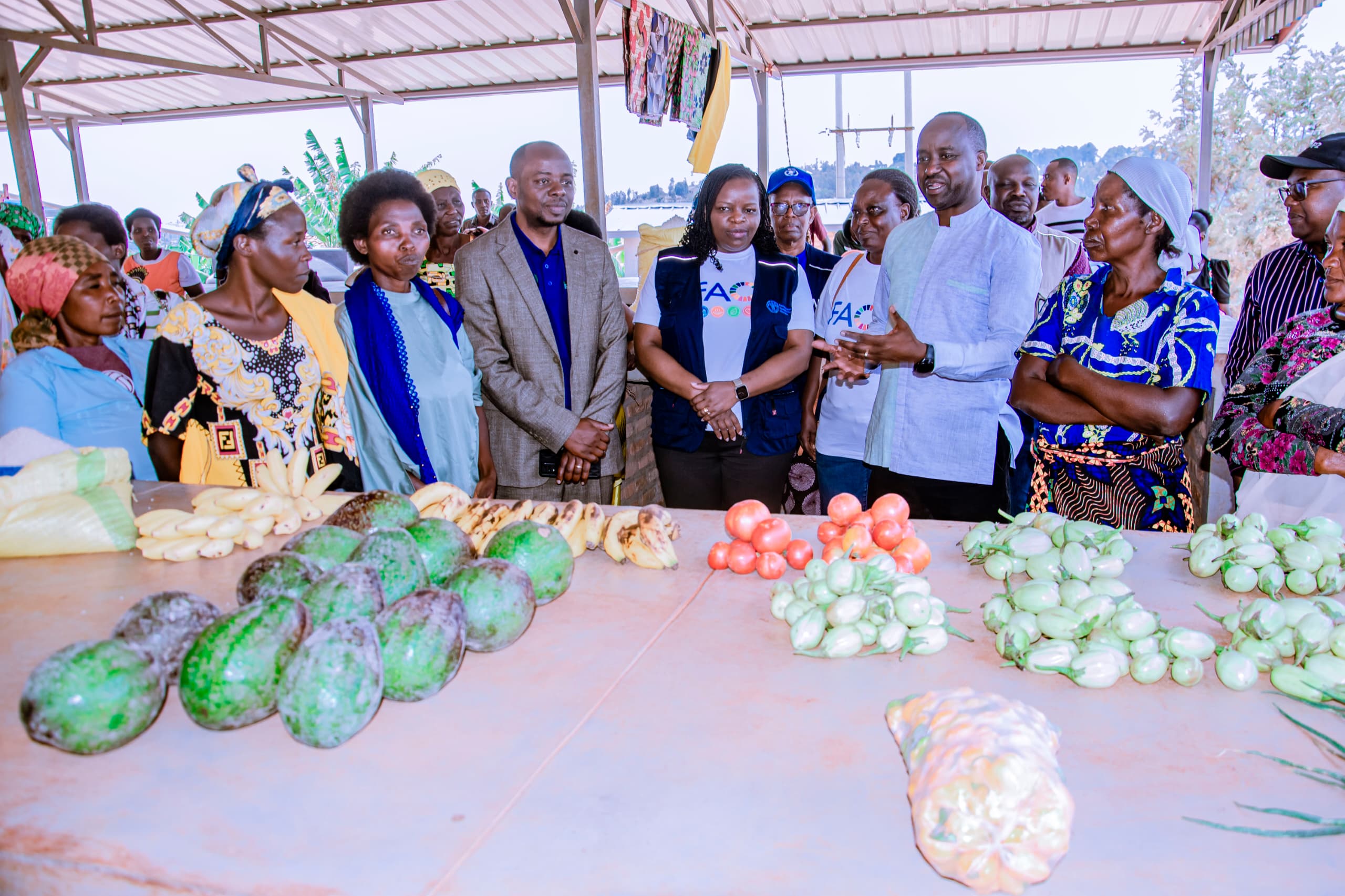
NSHIMIYIMANA FRANCOIS/ KGLNEWS GISAGARA DISTRICT


